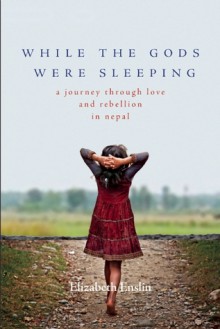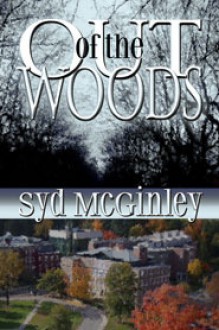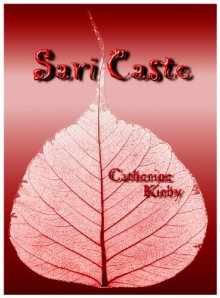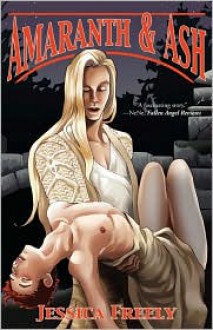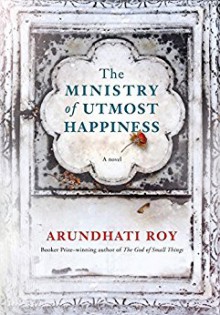
Thanks to NetGalley and Hamish Hamilton (and imprint of Penguin Random House, UK) for providing me with an ARC copy of this novel that I freely chose to review.
This is not an easy novel to review. So far I’ve found that with all the novels longlisted for the Man Booker Prize that I’ve read so far. They all seem to defy easy categorisation.
I know the author’s first novel has many admirers and I always felt curious when I saw it (be it at the bookshop or the library) but as it was also a long novel I kept leaving it until I had more time. That was one of the reasons why I picked up this novel when I saw it on NetGalley. I thought it would be a good chance to read one of the author’s works (and I know she’s published more non-fiction than fiction), and I must admit I loved the title and the cover too.
As a starting point, I thought I’d share some of the fragments I highlighted as I read. Some because of the ideas expressed (that made me pause and think), some because of the author’s powers of description, some because they were funny, some beautiful…
I’m not Anjum, I’m Anjuman. I’m a mehfil, I’m a gathering. Of everybody and nobody, of everything and nothing. Is there anyone else you would like to invite? Everybody is invited. (This one I added at the end, when I reread the first chapter, that had intrigued me but at the time wasn’t sure exactly of who was narrating the story, or even if it was a who, a what, a ghost, a tree…)
And she learned from experience that Need was a warehouse that could accommodate a considerable amount of cruelty.
Then came Partition. God’s carotid burst open on the new border between India and Pakistan and a million people died of hatred.
Saddam had a quick smile and eyelashes that looked as though they had worked out in a gym.
He spoke like a marionette. Only his lower jaw moved. Nothing else did. His bushy white eyebrows looked as though they were attached to his spectacles and not his face.
…a mustache as broad as the wingspan of a baby albatross…
When the sun grew hot, they returned indoors where they continued to float through their lives like a pair of astronauts, defying gravity, limited only by the outer walls of their fuchsia spaceship with its pale pistachio door.
Normality in our part of the world is a bit like a boiled egg: its humdrum surface conceals at its heart a yolk of egregious violence.
She walked through miles of city waste, a bright landfill of compacted plastic bags with an army of ragged children picking through it. The sky was a dark swirl of ravens and kites competing with the children, pigs and packs of dogs for the spoils.
These days in Kashmir, you can be killed for surviving.
In Kashmir when we wake up and say ‘Good Morning’ what we really mean is ‘Good Mourning’.
I think the first quotation (and one I mention later on), in some way, sum up the method of the novel. Yes, it is the story of Anjum, a transgender (well, actually intersex) Muslim woman from India who, from a very young age, decides to live her life her own way. She joins a group of transgender women (who’ve come from different places, some who’ve undergone operations and some not, some Christian, some Hindus, some Muslim, some young and some old…) but at some point life there becomes impossible for her and she takes her things and ends up living in a cemetery. Although she starts by sleeping between the tombs, eventually, with a little help from her friends, ends up building up a semblance of a house (that incorporates a grave or two in each room), where she offers room and boarding to people who also feel they don’t belong anywhere else. Her business expands to include offering burials to people rejected by the official church. But the story (yes, I know it sounds weird enough with what I’ve said) is not only Anjum’s story, the story of her childhood, her struggles, her desire to be a mother at any price, but also the story of many others. People from different casts, religions, regions, with different political alliances, professions, interests, beliefs… The story, told in the third person, also incorporates poems, articles, entries from a peculiar dictionary, songs, slogans, pamphlets, in English, Urdu, Kashmiri… The telling of the story is fragmented and to add to the confusion of characters, whose connection to the story is not clear at first, some of them take on different identities and are called by different names (and many difficult to differentiate if one is not conversant with the names typical of the different regions of India and Pakistan). Although most of the entries in other languages are translated into English, not all of them are (I must clarify I read an ARC copy, so it is possible that there have been some minor changes in the definite version, although from the reviews I’ve read they do not seem to be major if any at all), and I clearly understand why some people would find the reading experience frustrating. All of the fragments of stories were interesting in their own right, although at times I felt as if the novel was a patchwork quilt whose design hid a secret message I was missing because I did not have the necessary key to interpret the patterns.
The settings are brought to life by a mixture of lyricism, precise description, and an eye and an ear for the rhythms and the ebbs and flows of the seasons, the towns, and the populations; the characters are believable in their uniqueness, and also representative of all humanity, observed in minute detail, and somewhat easy to relate to, even though many of them might have very little to do with us and our everyday lives. But their love of taking action and of telling stories is universal.
There is a lot of content that is highly political about the situation in Kashmir, religious confrontations in India, conflicts in different regions, violence, corruption, class and caste issues, gender issues, much of it that seem to present the same arguments from different angles (all of the people who end up sharing Anjum’s peculiar abode are victims of the situation, be it due to their gender, their caste, their religion, their political opinions, and sometimes because of a combination of several of them) and I read quite a few reviews that suggested the novel would benefit from tougher editing. I am sure the novel would be much easier to read if it was thinned down, although I suspect that’s not what the author had in mind when she wrote it.
This is a challenging and ambitious novel that creates a kaleidoscopic image of India, an India made up of marginal characters, but perhaps truer than the “edited” versions we see in mass media. I have no expertise in the history or politics of the region so I cannot comment on how accurate it is, but the superficially chaotic feeling of the novel brings to mind the massive contrasts between rich and poor in the country and the pure mass of people that make up such a complex region. Although stylistically it is reminiscent of postmodern texts (made up of fragments of other things), rather than creating a surface devoid of meaning to challenge meaning’s own existence, if anything, this novel’s contents and its meaning exceed its bounds. The method of the novel is, perhaps, encapsulated in this sentence, towards the end of the book, supposedly a poem written by one of the characters: How to tell a shattered story? By slowing becoming everybody. No. By slowly becoming everything.
As I’ve written many times in my reviews, this is another book that I would not recommend to everybody. Yes, there are plenty of stories, some that even have an end, but it is not a book easy to classify, nor a genre book. There is romance, there are plenty of stories, there is poetry, there is politics, history, war, violence, prejudice, friendship, family relationships, but those are only aspects of the total. And, beautiful as the book is, it is not an easy read, with different languages, complex names, unfamiliar words, different styles and a fragmented structure. As I have not read Roy’s previous novel, I don’t dare to recommend it to readers who enjoyed her first novel, The God of Small Things. From the reviews I’ve read, some people who liked the first one have also enjoyed this one, but many readers have been very disappointed and have given up without reading the whole book. I’d say this is a book for people who like a challenge, who are interested in India from an insider’s perspective, don’t mind large doses of politics in their novels, and have the patience to read novels that are not page-turners full of twist and turns only intent on grabbing the readers’ attention at whatever cost. Check the book sample, read other reviews too and see if you’re up to the challenge. I know this is a novel that will stay with me for a very long time.

 Log in with Facebook
Log in with Facebook 
